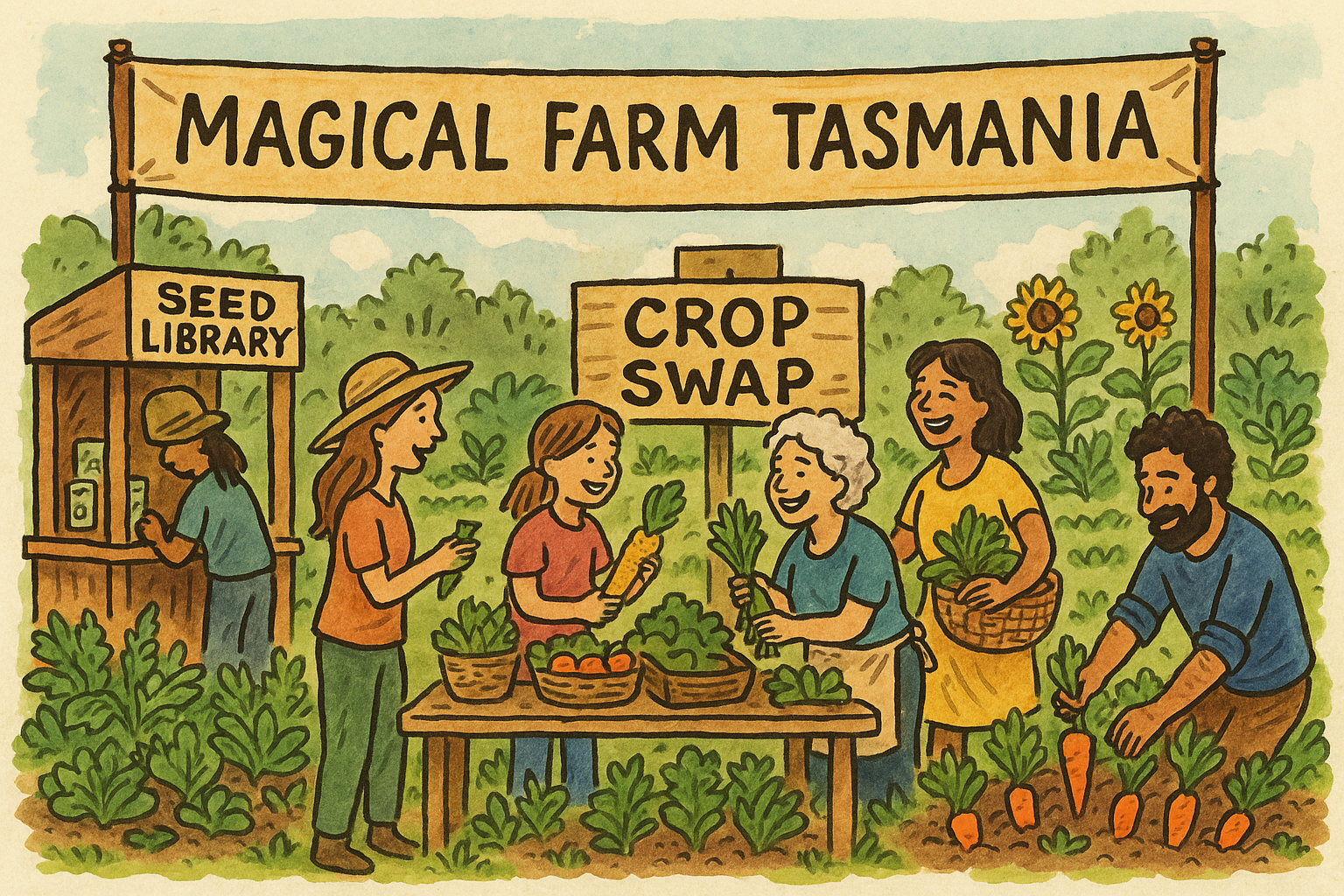“We weave ideas, scribe forward, align with life and create connection.”
— Dr Demeter | Emily Samuels-Ballantyne
Covering topics on Foundational Economics, Convivial Governance, Anthroposophic Philosophy & Everyday Regeneration in Tasmania
Overview
The Island Almanac is a living compendium of stories, tools and place-based examples that weave together foundational economics, anthroposophic wisdom and the rhythms of everyday life. Rooted in the soils of Tasmania and flowering from Magical Farm Tasmania. Across its pages you’ll find:
Practical essays on redirecting public and private wealth into community resilience
Anthroposophical reflections on seasonal rhythms, ritual and soul-led innovation
Tasmanian case studies from coastal hamlets to mountain valleys
Project spotlights on island-wide initiatives, from seed libraries to solar co-ops.
Living Architecture: A dynamic framework of interconnected practices, food, housing, energy, governance, culture, activism and economics that grows, adapts and breathes like an ecosystem, rather than standing as static policy or infrastructure. These seven pillars form the Living Architecture of Regen Era Design Studio & The Island Almanac: integrating heart, head & hands to power a truly regenerative future.
Food, Plants and Planets
Housing and Natural Building
Energy
Community Life, Learning & Culture
Sacred Activism
Convivial Governance
Regenerative Economic Design.
Who Counts As a Farmer? And why it matters for the future of our regions.
This piece by Dr Demeter (Emily Samuels-Ballantyne) explores the urgent need to redefine who counts as a farmer in Australia’s evolving agricultural landscape. It highlights how current government support programs like the Farm Household Allowance largely exclude small-scale, regenerative, and community-based farmers, many of whom are young people building resilient regional economies through diverse, place-based food systems. The article calls for policy reform that values ecological health, social wellbeing, and cultural vitality alongside traditional economic measures, urging recognition and support for the farmers shaping a reenerative future.
What Is Your Business Model, Local Government?
In this timely and provocative essay, What Is Your Business Model, Local Government?, Emily Samuels-Ballantyne invites a bold reimagining of the role and purpose of local government in the face of ecological collapse, social fragmentation, and bureaucratic drift. Drawing from lived experience in regenerative projects, from community harvests to Indigenous land care, she argues that local councils are too often locked into transactional models that fail to nourish the communities they claim to serve.
The essay challenges the obsession with “rates, roads, and rubbish” and calls for a cultural and functional transformation: from gatekeeping to stewardship, from abstraction to grounded care. It critiques the superficial focus on structural reform, how councils are carved up, while ignoring the deeper dysfunctions of waste, performance management, and disconnection from place.
What emerges is a clear-eyed case for a regenerative model of governance, one that centres community resilience, shared meals, public trust, and the radical possibility that local government could once again be a site of hope, not just administration.
The Fault Line Series: What Is Your Business Model?
In this sharp and grounded essay, Dr. Demeter (Emily Samuels-Ballantyne) turns the common bureaucratic question, “What is your business model?” back on local government itself. Drawing on two decades of lived experience as a community builder, policy designer, and regenerative farmer, she critiques the top-heavy policy pipelines that reduce care to documents and engagement to output metrics. With references to institutional theorists like Guy Debord, Ivan Illich, Henri Lefebvre, and Helena Norberg-Hodge, the essay explores how public funding is often diverted away from tangible outcomes into layers of abstraction and consultancy. Through the lens of her own project, the Huon Valley Food Hub, Demeter offers an alternative approach: the redirection of the brief toward grounded, co-created, and regenerative public work. The piece concludes with a call for a new kind of public service, one rooted in care, participation, and a living systems worldview.





